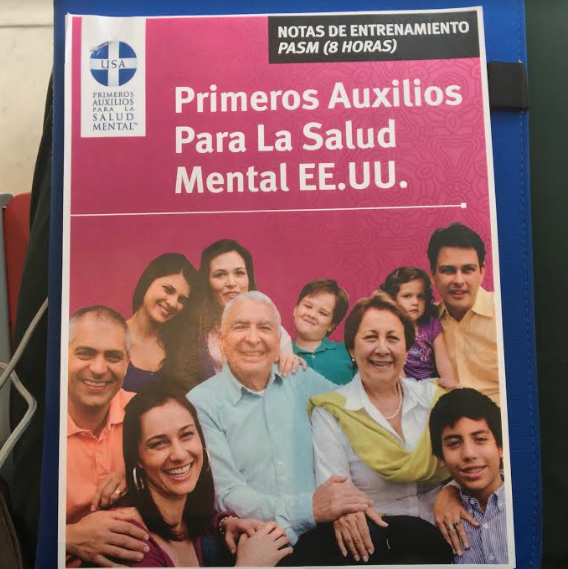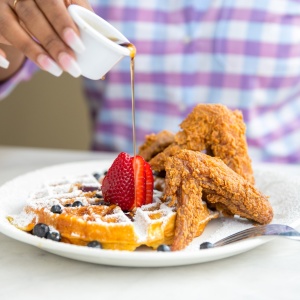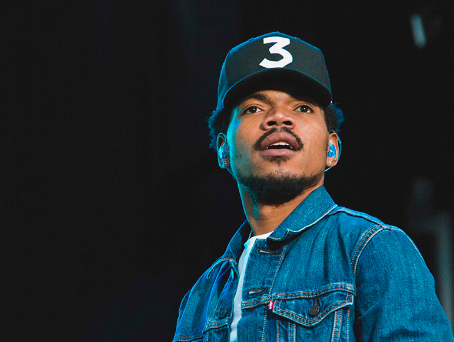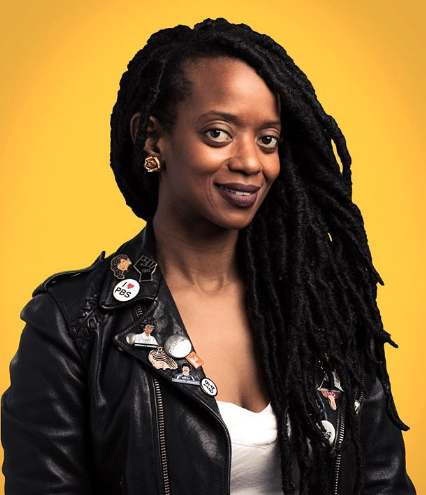Photo: Thembela Ngayi
Welcome to another round of Mental Health Monday, your weekly dose of stories, resources, and motivation for your everyday life. On last week's Mental Health Monday, longtime fan favorite Dr. Miranda Bailey had "the talk" with her 13-year-old son about surviving interactions with police, what it's like to live with Alzheimer's, how social interaction helps folks with dementia, how being "Magical" hurts our mental health, and more. Check it out here.
THIS WEEK'S GOODNESS:
"For Black people who avoid mental health treatment for reasons other than our “culture” or fear of malpractice" by Hari Ziyad [Black Youth Project]
I am a Black boy who has seen Black friends die, Black family members stuffed in cages, my Black grandmother beaten, and my Black body raped. I am a Black boy who has seen these brutalities replay themselves over and over again on the news, on the internet when I turn off the TV, and on the stroll home through my rapidly gentrifying neighborhood when I shut off my phone.
"Distraught people, deadly results" by Wesley Lowery, Kimberly Kindy, Keith L. Alexander, Julie Tate, Jennifer Jenkins, Steven Rich [Washington Post]
That afternoon, David Felix, a 24-year-old black man with schizophrenia, was killed by police in the New York apartment building where he lived with other men undergoing treatment for mental health problems, according to police reports. Police said he struck two officers with a heavy police radio after they tried to serve him with a warrant for allegedly punching a friend in the face and stealing her purse.
"Reflections on my thirty-four years as a Black man with mental illness" by Kelvin Easiley, Jr [Black Youth Project]
I realized this morning how hard I fight for my fucking life. I am a Black man with schizoaffective disorder. Nine years have passed since my twenty-fifth birthday and I’m still alive. I don’t take this lightly, because growing up, it was common knowledge that many young Black men did not make it to their twenty-fifth birthday.
I woke this morning unable to get out of bed. Thus, I couldn’t make it to work on time, again. I had to alert my supervisor to my belated arrival. It wasn’t the usual, “not feeling like going to work today, so I’m staying in bed”, it was “my medication has me so drowsy, that the six hours of sleep I got last night hasn’t sufficed to have had the half life of the side effects wear off.” kind of staying in bed.
COMMERCIAL BREAK:
Are you all caught up on our 2018 Extraordinary Negro of the Day series?
Black History Month will never be the same. Catch up here.
"Facing a Mental Health Care System Gutted by Mayor Emanuel, Chicago Residents Plagued by Gun Violence Are Opting To Fund Their Own Clinics" by Jonathan Foiles [Belt Magazine]
There is one mental health facility in Chicago that has not had its funding threatened: Cook County Jail. A third of the inmates experience mental health issues, and the number of mentally ill inmates increased threefold to 2,800 from 2010 to 2014, a time period coinciding with the closure of the six clinics. At least a third of these mentally ill inmates were incarcerated for low-level offenses. Not only is it inhumane to incarcerate the mentally ill, it is also expensive; it costs around $143/day to house a healthy inmate, two to three times that amount for one with a mental illness.
RESOURCES
"Did you know that African Americans living below poverty are three times more likely to report serious psychological distress than those living above poverty? We are also 20% more likely to experience serious mental health problems than the rest of the general population."
Jasmin Pierre reached out to us to share information about a necessary app she built to spread awareness about mental health and provide resources for Black folks. It's called Safe Place.
On her dream for the Safe Place app, founder Jasmin Pierre told TheExtraordinaryNegroes.com, "I want it to change the way our people think about mental illness. I want my app to not only educate our people but give them a sense of relief that they're not alone. I also want it to help save lives."
Expounding on how the Safe Space app can change and save lives, she added:
"My app is full of resources for people to reach out if need be. More and more black people are ending their lives and living in fear and shame because of their mental health. I want all of that to change. All races go through mental health challenges and it's nothing to be ashamed of. It's time that we realize that."
"Safe Space" is now available to download on iPhones and los Android devices. Here's the Safe Place Facebook page.
If you have a mental health resource, event, or piece of content we should know about, step into our office. You da bess.



































